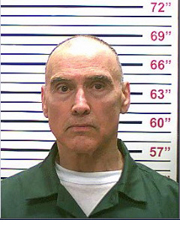Thursday I shot a standup at the Cole County Courthouse about why Jefferson City had sued its own county. The first take where I didn't stutter, I had the camera zoomed out a little too far. So, I redid the standup the second time and actually said 'the city has filed a suit in order to not have to pay more taxes.' The city really filed the suit, so they can keep more money in the future that they had not received from a county miscalculation. Would the city use some of this extra money to pay off more taxes? Probably. But would they use this extra money to not have to pay more taxes? That seems like a stretch.
After hearing my story air in the 9 o'clock on the CW, I used the wider standup where I could have been framed better because that standup had the right information in it. I didn't have to rush too much to simply put one of my standups in, but I had the gut feeling I should use the one with the right information in it more than the one that didn't. After watching the story, I went to my managing editor Elizabeth Frogge. I wanted her thoughts on what I should do. Fortunately for me, we were both on the same wavelength. She said I shouldn't sacrifice for a shot's framing, especially if the shot of the frame with the right information in it doesn't look terrible, which it didn't. I'm glad I gave the people all truthful information in my story in both the 9 and 10 pm shows.
This doesn't cover though what I should have done to get the right information and an even better framing. I had to hurry to go get b-roll of my CCC, Jefferson City Counselor Nathan Nickolaus, so I left after shooting my second standup. I did the standup near other people and felt a little awkward doing it. Therefore, I wanted to get out of there as soon as possible. So I did. Had I been able to do it over again, I would have re shot the standup until I got the information right with a good tight framing. If I truly want to be a journalist, I'm going to have to get over that fearfulness. I kind of wish I could go shoot that standup again and nail it with a good tight frame to prove to myself that I'm not scared of doing something uncommon for a TV story. Besides, my CCC had more time than he previously thought, so I really did not need to be in a hurry to leave the office. Ugh.
See my story
Send me an email




